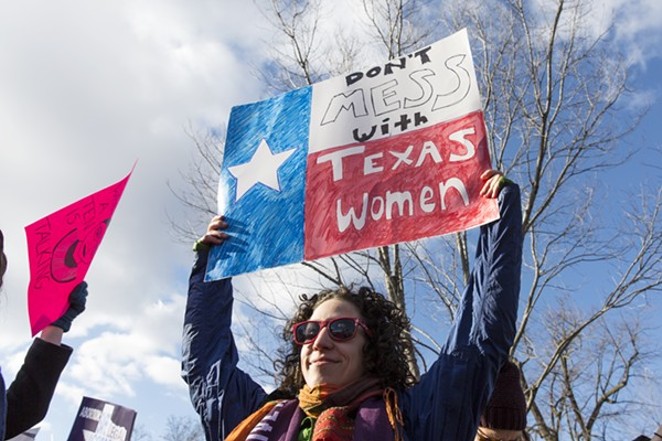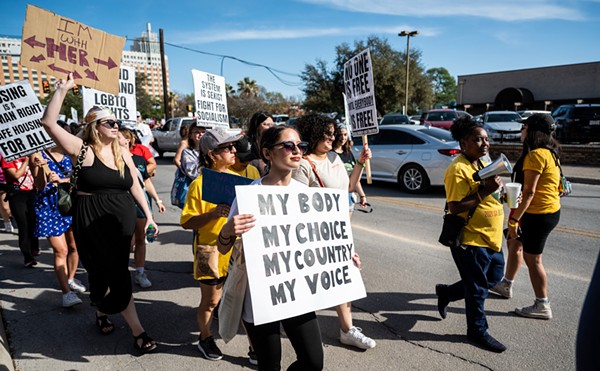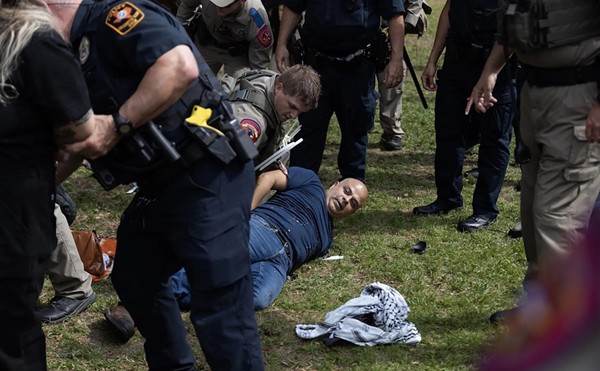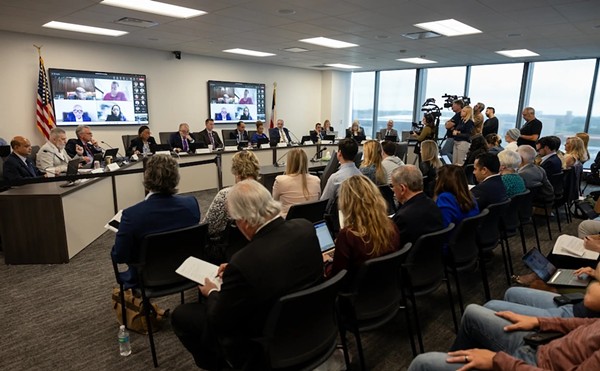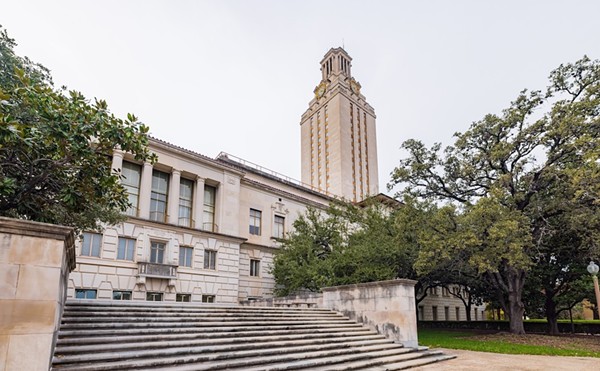Federal Judge Temporarily Blocks Texas' Fetal Burial Law
By Lyanne A. Guarecuco on Mon, Jan 29, 2018 at 5:55 pm
A federal judge blocked part of a Texas law, set to go in effect on Feb. 1, which would have required medical providers to bury or cremate fetal remains from miscarriages and abortions.
During the 2017 Texas legislative session, lawmakers passed Senate Bill 8, an anti-abortion bill which, among other things, would amend the state’s Health and Safety Code to mandate the cremation or burial of all fetal remains.
But on Monday, U.S. District Judge David Alan Ezra issued a preliminary injunction, temporarily blocking that specific provision of SB 8, saying the measure's "burdens appear to outweigh its benefits."
According to Ezra, the provision would likely place “an undue burden on abortion access,” and could present additional burdens, like increased costs for healthcare providers.
Ezra also pointed out that the provision’s intent was not to improve health or safety in the state: in the text of the bill, the purpose of the provision is stated as “to express the state’s profound respect for the life of the unborn by providing a dignified disposition of embryonic and fetal tissue remains.”
“No health and safety purpose has been articulated despite [the provision’s] presence in the Texas Health and Safety Code,” Ezra wrote.
This is the second time a federal judge has blocked the state's attempt to mandate the burial of fetal remains.
In 2016, days after the U.S. Supreme Court ruled that parts of Texas’ 2013 omnibus anti-abortion law (known as House Bill 2) were unconstitutional, Texas health officials (backed by Governor Greg Abbott) attempted to amend the Texas Department of State Health Services’ Administrative Code to require health care facilities to bury or cremate fetal remains.
Judge Sam Sparks issued a scathing order blocking the amendments in Jan. 2017, in which he also pointed out that DSHS admitted they provided no health benefits — much like Ezra’s ruling almost exactly one year later.
In November, U.S. District Judge Lee Yeakel ruled against a different provision of SB 8 that would have banned the safest and most common abortion procedure in the second trimester, known as a "dilation and evacuation" (or D&E) abortion, arguing that it placed an "undue burden" on women seeking a second trimester abortion in Texas.
The lawsuits against SB 8 haven't addressed the provisions in the bill that prohibit the sale of fetal tissue and limit fetal tissue donations, or the provision that requires physicians who perform abortions in abortion facilities to submit a monthly report to DSHS on each abortion performed.
"Today's decision is a strong affirmation of what we have always fought for— that women deserve to have the dignity when making health care decisions," Amy Hagstrom Miller, the President of and CEO of Whole Woman's Health, said in a statement. (Whole Woman's Health is a lead plaintiff in both of the SB 8 lawsuits.)
Though the injunction is a small win for women's rights advocates, Ezra warns in his opinion that reading too much into the preliminary injunction to guess which side will ultimately prevail in court "would be premature."
Following the ruling, Texas Attorney General Ken Paxton said he would continue "fighting to honor the dignity of the unborn" in a statement.
Both sides have 10 days to submit proposed dates for a trial to be held in order to determine whether the provision stays or goes.
During the 2017 Texas legislative session, lawmakers passed Senate Bill 8, an anti-abortion bill which, among other things, would amend the state’s Health and Safety Code to mandate the cremation or burial of all fetal remains.
But on Monday, U.S. District Judge David Alan Ezra issued a preliminary injunction, temporarily blocking that specific provision of SB 8, saying the measure's "burdens appear to outweigh its benefits."
According to Ezra, the provision would likely place “an undue burden on abortion access,” and could present additional burdens, like increased costs for healthcare providers.
Ezra also pointed out that the provision’s intent was not to improve health or safety in the state: in the text of the bill, the purpose of the provision is stated as “to express the state’s profound respect for the life of the unborn by providing a dignified disposition of embryonic and fetal tissue remains.”
“No health and safety purpose has been articulated despite [the provision’s] presence in the Texas Health and Safety Code,” Ezra wrote.
This is the second time a federal judge has blocked the state's attempt to mandate the burial of fetal remains.
In 2016, days after the U.S. Supreme Court ruled that parts of Texas’ 2013 omnibus anti-abortion law (known as House Bill 2) were unconstitutional, Texas health officials (backed by Governor Greg Abbott) attempted to amend the Texas Department of State Health Services’ Administrative Code to require health care facilities to bury or cremate fetal remains.
Judge Sam Sparks issued a scathing order blocking the amendments in Jan. 2017, in which he also pointed out that DSHS admitted they provided no health benefits — much like Ezra’s ruling almost exactly one year later.
In November, U.S. District Judge Lee Yeakel ruled against a different provision of SB 8 that would have banned the safest and most common abortion procedure in the second trimester, known as a "dilation and evacuation" (or D&E) abortion, arguing that it placed an "undue burden" on women seeking a second trimester abortion in Texas.
The lawsuits against SB 8 haven't addressed the provisions in the bill that prohibit the sale of fetal tissue and limit fetal tissue donations, or the provision that requires physicians who perform abortions in abortion facilities to submit a monthly report to DSHS on each abortion performed.
"Today's decision is a strong affirmation of what we have always fought for— that women deserve to have the dignity when making health care decisions," Amy Hagstrom Miller, the President of and CEO of Whole Woman's Health, said in a statement. (Whole Woman's Health is a lead plaintiff in both of the SB 8 lawsuits.)
Though the injunction is a small win for women's rights advocates, Ezra warns in his opinion that reading too much into the preliminary injunction to guess which side will ultimately prevail in court "would be premature."
Following the ruling, Texas Attorney General Ken Paxton said he would continue "fighting to honor the dignity of the unborn" in a statement.
Both sides have 10 days to submit proposed dates for a trial to be held in order to determine whether the provision stays or goes.

KEEP SA CURRENT!
Since 1986, the SA Current has served as the free, independent voice of San Antonio, and we want to keep it that way.
Becoming an SA Current Supporter for as little as $5 a month allows us to continue offering readers access to our coverage of local news, food, nightlife, events, and culture with no paywalls.
Scroll to read more San Antonio News articles
Newsletters
Join SA Current Newsletters
Subscribe now to get the latest news delivered right to your inbox.

